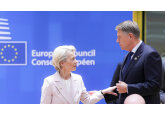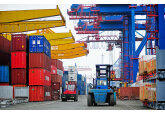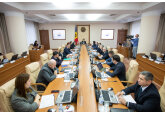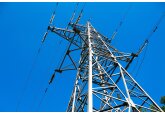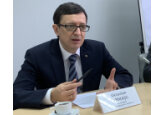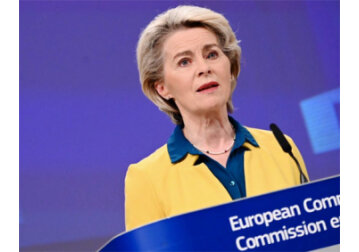
Moldova will be able to receive electricity from Azerbaijan through Georgia and Romania as part of its common supplies to Europe through a cable across the Black Sea.
This was stated by the President of the European Commission Ursula von der Leyen after the signing in Bucharest of the Agreement on Strategic Partnership in the Development and Delivery of Green Energy between the governments of Azerbaijan, Hungary, Georgia and Romania, which provides for the laying of an underwater electric cable across the Black Sea. The document was signed by Azerbaijani President Ilham Aliyev, Hungarian Prime Minister Viktor Orban, Georgian Prime Minister Irakli Garibashvili and Romanian Prime Minister Nicolae Ciucă. Romanian President Klaus Johannis and European Commission President Ursula von der Leyen attended the ceremony. "This agreement provides a framework for long-term cooperation between our countries in a number of very important sectors, first of all in the production, transportation and sale of energy, then in the development of new infrastructure, including the laying of a underwater cable across the Black Sea, in projects concerning green hydrogen and efficiency," Klaus Johannis said. According to him, this is an ambitious project that shows that together we can make a serious contribution to strengthening European energy security and contribute to the long-term growth of cooperation in the region. "We also want to expand maritime transport links between Constanta in Romania and Georgia. These efforts will multiply reciprocal connections also with Azerbaijan and further with Central Asia," he added. As Ursula von der Leyen noted in turn, since the beginning of the war in Ukraine, the EU "has decided to abandon Russian fuel and diversify sources among such reliable energy partners as those sitting around this table." "The EU was able to compensate for the reduction in gas supplies from Russia. But we're not just talking about a new geopolitical situation. We are also talking about creating a future for us in terms of clean, affordable and reliable energy sources, and these are different types of renewable energy," the head of the European Commission said. In turn, Azerbaijani President Ilham Aliyev said that Azerbaijan is expanding its geographical area by supplying gas to European markets. "Our country will become an important supplier of electricity to Europe, especially green energy. The renewable energy potential of Azerbaijan is more than 27 GW of wind and solar energy on land and 157 GW of offshore wind energy in the Azerbaijani sector of the Caspian Sea," President of Azerbaijan said. Also Prime Minister of Georgia Irakli Garibashvili noted that Georgia has a huge potential for the production and export of renewable energy, which can contribute to the energy security of Europe. "Currently, Georgia has the necessary infrastructure to deliver energy to neighboring countries, except for Europe. The underwater cable in the Black Sea would provide a very important perspective in this direction," he said. Head of the Hungarian Foreign Ministry Péter Szijjártó said that the feasibility study of the project of the underwater cable to deliver electricity from Azerbaijan to Europe will be ready by the end of 2023, and investments in it are designed for up to 4 years. Péter Szijjártó called the forthcoming laying of submarine cable 1,195 km long under the Black Sea a "new world record". He also said that Azerbaijan is now forming a consortium of investors to install wind farms in the coastal areas of the Caspian Sea. Péter Szijjártó noted that the European Commission considers this project important for the whole Europe and has allocated 2.3 billion euros for it. The Hungarian government expects that part of environmentally clean electricity coming from Azerbaijan via Georgia and Romania will be used in Hungary, and part - to go to other countries. A fiber optic cable is also planned to be laid along the transmission line. // 19.12.2022 – InfoMarket


